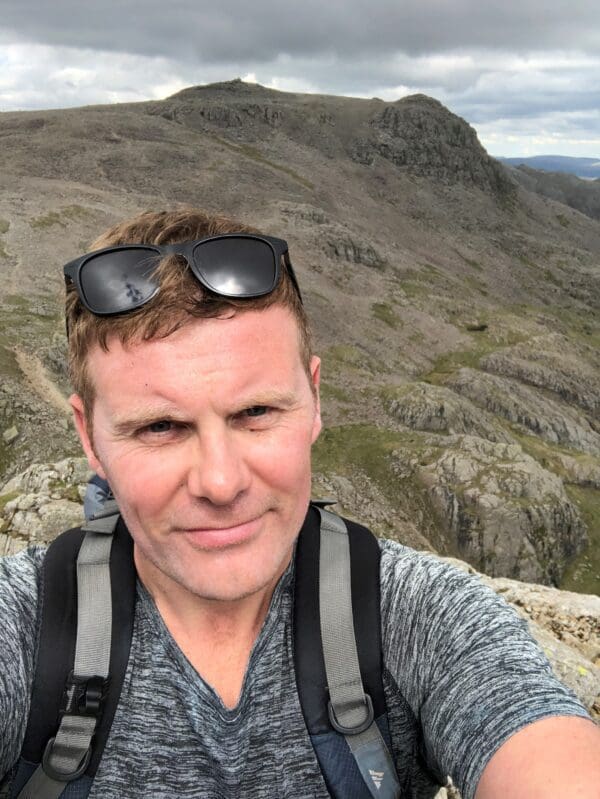Building, leading and recruiting excellent teams of field engineers
This article looks at how to succeed at recruiting, building and leading excellent teams of field engineers. It gives advice on how to recruit field service engineers without conscious or unconscious bias. Meet Lee Oliver.
Recruiting, building and leading excellent teams of field service engineers without conscious or unconscious bias


The challenge of recruiting excellent teams of field engineers
How do you recruit, lead, manage and build teams when the people in the team:
Have more experience/are older than the team leader
Are of a different gender, background, first language
Have different education levels
Join with different work experience to date (other sector or industry, much smaller organisation or have worked for themselves)
Are very technical and skilled but with a lower level of literacy
Nearing retirement age
Are actively looking for another role
Are undergoing difficult home circumstances (divorce, bereavement, illness..)
Have a disability.
As well they will have different styles of thinking, problem solving and learning.
High performing excellent teams of field engineers
How do you produce a high performing team?
One of the key ingredients for a high performing team is its diversity. By that I mean, diversity of background, experience, personalities, and of course neurodiversity, bring a diversity of thought to the team. One of the traps leaders can fall into is recruiting people who look and think like themselves, either purposefully or due to unconscious bias. We naturally get along better with people who think like us.
What are the steps you take to achieve this?
So how do we face into this? There are five areas to look at:
Recruitment and reviewing CVs/Resumes
Interview questions and the interview itself
Authentic leadership
Performance and retention
Team culture


Recruiting excellent teams of field engineers
The first thing to look at is recruitment.
Is the job description an accurate reflection of the person you need? I know in my career I have been encouraged, more than once, to add a requirement for a degree simply to justify the salary band that the job sits in! Challenge yourself to think about the traits you need and how the job description reflects this.
Interview Questions for recruiting field engineers
Can you send the interview questions out in advance? (yes, in advance!!). I recently attended a brilliant talk on neurodiversity: the challenges and opportunities of recruiting and getting the best out of neurodiverse people. The number one change that would get neurodiverse people to apply and flourish in the interview? Share the interview questions with all candidates in advance. Not everyone thinks the same and it can be a source of real anxiety for some people to go into the unknown. If you think about it, you always want that person to do the best they can in the interview, so allowing preparation shouldn’t be an issue. A good interviewer will always explore the answers with supplementary questions too.
The interview itself
Once you have a list of candidates to speak to for a first telephone interview do not use video (turn off the camera for the candidates if it is a Teams/Zoom interview). This will help reduce unconscious bias.
A voice only call gives you the opportunity to listen to what and how people communicate their background and achievements. You should already have an idea of where the gaps are in your team for either technical skills, knowledge and experience, or personality. The first two areas are tangible so they should be easier to identify. Personality is a bit more difficult. There are plenty of personality tests out there, but personally I like Insights.
Whichever one you choose make sure you understand your team’s communication preferences and how they prefer to work. You may find that the team is made up of people who think like you do, in which case there is an opportunity to diversify.
Authentic leadership of excellent teams of field engineers
Leader authenticity is crucial here if you are to engage the team. It is important that the leader is genuinely interested in the team members, is invested in responding to what they hear, and acts upon it. This includes being a catalyst for the team members’ development and investing time, effort, and resources as needed.
Managing performance and retention of excellent teams of field engineers
Once you understand the preferences of individuals in your team you can make sure you lead to these preferences. Some people are very detailed orientated, whilst others want to enable change through people without getting into the detail. A good team has a mixture of people. Therefore, if you play to their individual strengths, the detail orientated person will ensure there is enough detail behind any changes the team makes whilst the individuals with a passion for action will drive the change forward with pace.
How do you handle inheriting a team?
Of course, we mostly inherit a team with different personalities, skills, experience, and at varied stages of their careers. Therefore, it is important to respect and embrace these differences and make time to understand what inspires each person. This is where authenticity comes into its own for a leader.
The best leaders are those that listen to their team members, have an interest in them as people, have their backs, and unblock resistance within an organisation for their team. For example, in my experience, approaching your team in this way goes a long way to building the all-important trust factor. You can then discuss, individually and as a team, what each of the team members brings to the team. For those with years of experience they will likely relish the acknowledgment of their competence. For those just starting out they will thank you for giving them the space to learn. When mistakes are made, they should be celebrated as learning opportunities. So, this means sharing of experiences and should start with the leader sharing their own mistakes. This should be seen as a sign of strength, not weakness by the team and leader alike.
Individual team member goals
How important are the goals of each individual team member?
Each team member will have different aspirations and different career goals. Having an understanding, and helping them attain their goals, always come out as one of the most important traits from employees of a good leader when asked to describe what’s important to them.
Team culture after recruiting an excellent team of field engineers
Finally, the culture needs to be right in the team. High performing teams all have a culture where everyone is able to speak up and everyone’s opinion is equally valid. Crucially this means that they are all able to challenge the leader robustly. To facilitate this in the early days, I often found that sharing my opinion last gave people time to think and space to say what they really thought. They could do this before I told them what I was thinking. It also meant that if I listened then it may change my opinion as the team worked through the options.


About the author
Lee Oliver is Head of Transformation for Skewb.
Lee has been involved in recruiting and leading excellent teams of field engineers across different sectors. Because of this he is an expert in building, training and leading teams and has an ability to inspire them and to gain their trust with commitment.
Lee has a strong background in transforming organisational culture with cost and time improvements across the manufacturing and service industry. In particular he is expert in recruiting excellent teams of field engineers without conscious or unconscious bias.
Further reading
Lee Oliver advice on leading large teams of Field Engineers
Diversity in field engineering – Allyship – a practical and positive compass
Unconscious Bias in Field Engineering


Awesome Article. Would love to meet with him (Lee Oliver).
Thanks Peter. Happy to link up
A fantastic piece that is definitely worth reflecting on. Especially the part where questions for interview are sent out beforehand to account for neurodiversity of interviewees.